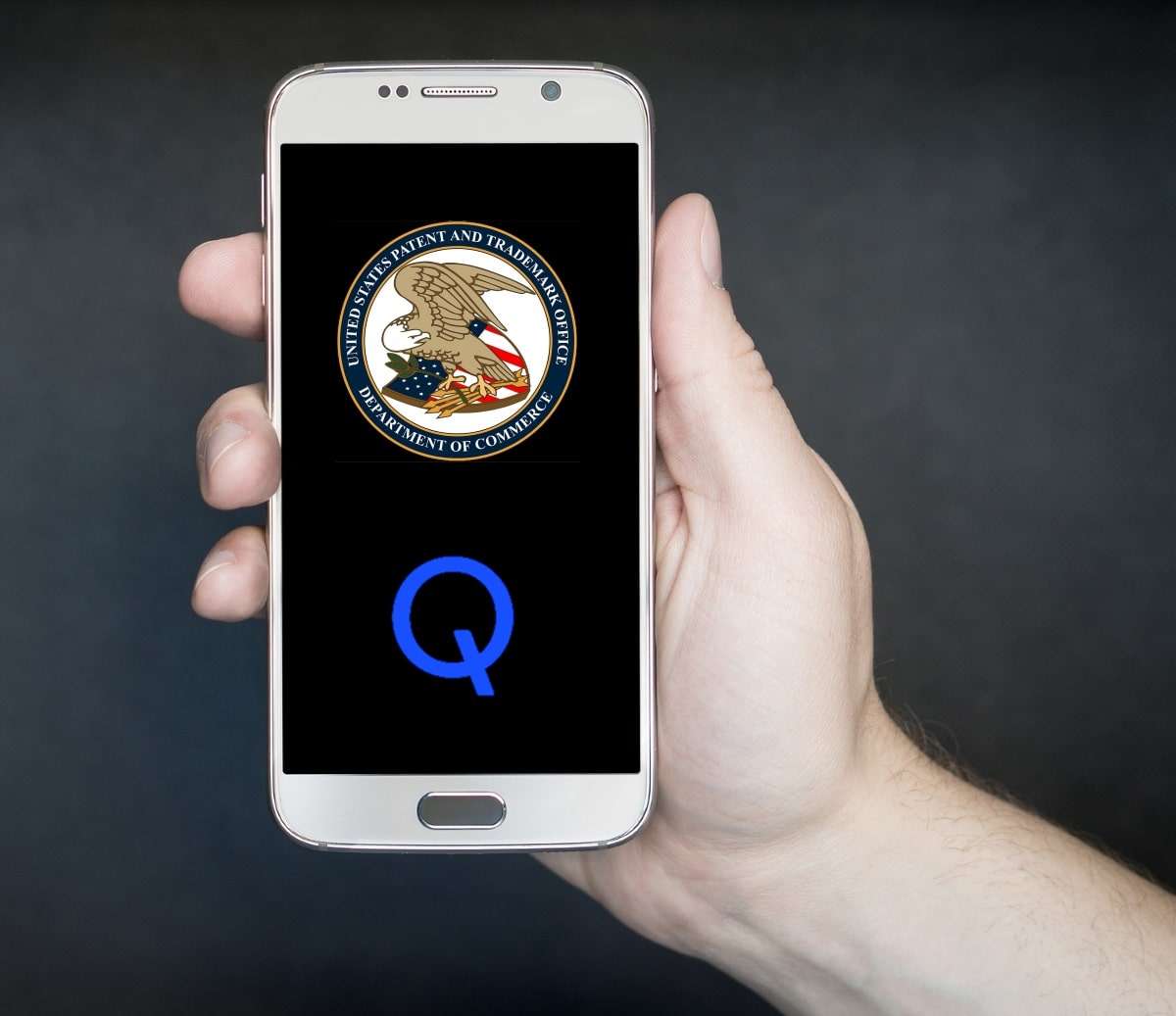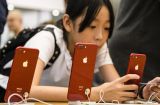Apple Testifies in Q’com Patent Case
Qualcomm and Apple faced off in San Jose District Court Friday in the ongoing dispute over patents. An Apple executive suggested Qualcomm’s royalties were more than $10 per iPhone.

Qualcomm refused to supply chips without a patent license and paid Apple “huge” royalty rebates to use its cellular baseband chips exclusively, according to testimony today by Apple’s head of procurement in San Jose district court. Attorneys for Qualcomm noted Apple used Infineon and Intel modems exclusively at different periods and evaluated several alternative suppliers.
The case, brought by the U.S. Federal Trade Commission, alleges Qualcomm has used unfair licensing policies to dominate the cellular chip market for years. Witnesses include a laundry list of carriers and chip and handset makers. The trial before Judge Lucy Koh is scheduled to conclude early next month.
Tony Blevins, Apple’s vice president of procurement, recalled a "watershed meeting” in late 2013 with now Qualcomm president Cristiano Amon. At the time Apple was trying to reduce the cost of Qualcomm baseband chips it was using by conducting an analysis of manufacturing costs at TSMC where both companies both made chips.
Amon “finally leveled with me. He said, ‘I just came back from an investors conference and I am under intense pressure to monitize [our technology] and I will have whatever the market can bear and Apple can afford to pay this — we don’t need to talk about costs and margins.’”
Blevins said he canceled the rest of his meetings for the day. “We needed to do something different or we would be in a bad place, [so] we kicked off a new project to find an alternative supplier” called Project Antique, Blevins said.
The effort ultimately led to exclusive use today of cellular modems from Intel’s wireless group, which has its heritage in the Infineon group that was the sole supplier for the first two generations of iPhones, a Qualcomm attorney noted.
“We made this challenge, so Qualcomm was no longer willing to sell us chips…we want both Qualcomm and Intel in the mix — competition leads to…more diligent technical schedules and innovation,” Blevins said.
Qualcomm’s alleged use of a unique practice of linking patent licensing deals to chip sales is at the heart of the case. Blevins said it first came to his attention in a 2005 letter from Qualcomm in response to Apple’s request for baseband samples and specs as part of an evaluation for the original iPhone.
“In substitute of samples, we got this letter” asking for a patent license first. “In 20 years in this industry I had never seen a letter like this…Our interpretation was ‘no license, no chips,’” Blevins said.
Qualcomm also asked for a cross-license to Apple’s IP. “We were taken aback. We knew we would not cross license our IP back to them, we were [just] going to buy a chip,” he said.
About two years ago, NXP asked Apple to sign a patent license in exchange for access to its NFC chips. “I was on vacation...and called [the NXP] CEO that day and said if they want more money put it in the hardware [price] and [we’ll see if] it's competitive. They withdrew their request for a license that day,” he said.
Apple and Qualcomm struck five patent and supply agreements from 2007 to 2013. The latest ones included deals to get large rebates of royalties pad in exchange for exclusive use of Qualcomm modems.
Qualcomm executives Derek Aberle and Amon both suggested Apple could get a “royalty less than $10 [per handset] only if we brought additional value to the table — if you bring me exclusivity,” Blevins said.
Apple considered the reduced royalties to be still higher than those paid by its rivals, but they didn’t “gouge us…They made it very unattractive to choose another supplier…it was no longer a level playing field as it was before,” he added.
Due to the exclusivity deal, Blevins cancelled plans in the works to use an Intel data-only cellular modem in an iPad Mini 2. Apple had internally agreed the design win would be a step to working Intel modems into iPhones.
In a call to Hermann Eul, then Intel's general manager, “I expressed misgivings. They hadn’t don’t anything [wrong, but] we had an agreement with Qualcomm,” he said.
In another meeting, the head of Qualcomm’s licensing group, Eric Reifschneider, asserted his dominance over Amon, who led the chip group, Blevins reported.
“Cristiano was speaking directly to me, and Eric cut him off and said, ‘I run a division that makes two-thirds of corporate profits and you make one third, so let’s be clear who does the talking,’ I felt it was inappropriate in front of a customer to make such a statement and unfair to Cristiano,” Blevins said.
Qualcomm would not agree to terms of supply agreements Apple considered standard with other suppliers, driving harder deals around patents, Belvins said. “It was uncommon for me to deal with any company’s licensing team, but with Qualcomm it became common,” he added.
A Qualcomm attorney noted that in 2007-2009 agreements, Apple agreed to pay Qualcomm royalties although it did not buy its chips then. Apple continues to consider Mediatek and Samsung as alternative baseband suppliers and in the past had considered ST Ericsson and Texas Instruments as well, she noted.
The FTC continued its case Friday with testimony from licensing and procurement executives from Samsung and Lenovo’s Motorola group.
在线留言询价

Apple Reveals Qualcomm Patent Fees
- 一周热料
- 紧缺物料秒杀
| 型号 | 品牌 | 询价 |
|---|---|---|
| MC33074DR2G | onsemi | |
| RB751G-40T2R | ROHM Semiconductor | |
| TL431ACLPR | Texas Instruments | |
| CDZVT2R20B | ROHM Semiconductor | |
| BD71847AMWV-E2 | ROHM Semiconductor |
| 型号 | 品牌 | 抢购 |
|---|---|---|
| ESR03EZPJ151 | ROHM Semiconductor | |
| TPS63050YFFR | Texas Instruments | |
| BU33JA2MNVX-CTL | ROHM Semiconductor | |
| BP3621 | ROHM Semiconductor | |
| IPZ40N04S5L4R8ATMA1 | Infineon Technologies | |
| STM32F429IGT6 | STMicroelectronics |
- 周排行榜
- 月排行榜
AMEYA360公众号二维码
识别二维码,即可关注


请输入下方图片中的验证码:























